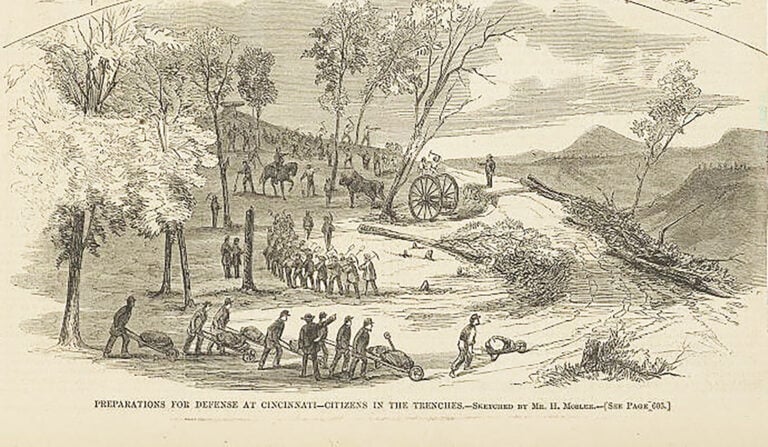WASHINGTON – It didn’t take long for Senate Republican Leader Mitch McConnell to get a taste of his own medicine, and it’s becoming increasingly apparent that the man chosen to lead the upper chamber for at least the next two years is going to have to get used to the bitter flavor.
The Louisville lawmaker, whose actions during the first six years of the Obama administration resulted in unprecedented legislative gridlock and nurtured the nation’s growing distrust of its own government, promised that things would be different once he held the gavel, which he now does as the result of the Republican takeover following the November elections.

McConnell vowed to get the Senate back on track, starting with a commitment to strong and robust debate on the issues of the day, something that admittedly was lacking during the leadership of Senate Democratic Leader Harry Reid, of Nevada. Democrats, he said, would receive an opportunity to argue for and against legislative proposals and get a vote on their amendments.
The first test of that pledge came during debate over construction of the Keystone XL pipeline, a project that President Obama views with a jaundiced eye and GOP lawmakers are promoting as a jobs bill of staggering proportions. The pipeline will, if approved, transport oil from Alberta, Canada, to distribution points in the U.S. It has the support of labor and the Chamber of Commerce, but environmentalists are aghast over the prospects of a spill leading to the potential for an ecological disaster.
McConnell has made batting away the administration’s concerns and getting the pipeline built one of his early priorities. It seemed like a no-brainer since the Senate, in a previous consideration of the project, fell just one vote short of approval, and that coming with Democrats still in control. The additional GOP votes, along with the support of conservative Democrats like Sen. Joe Manchin, of West Virginia, and Sen. Heidi Heitkamp, of North Dakota, was expected to put it over the top.
Things seemed to be going McConnell’s way. Debate proceeded and on Jan. 22, in self-congratulatory fashion, he asserted, “It’s great to see a real debate on the floor of the Senate again.’’
“A more open Senate presents more opportunities for legislators with serious ideas to make a mark on the legislative process,’’ McConnell boasted. “It can give members of both parties a real stake in the outcome. And because it does, it represents one of our best avenues to secure passage of sensible legislation centered on jobs and the middle class. That’s something we should all want.’’
Nice words, but apparently McConnell’s embrace of an open amendment process extends only so far. Five days later, while “real debate’’ droned on in full swing, he sought to end all the talk and proceed to a vote.
It was like a scene out of a 1930s Little Rascals short – the head of the orphanage supplies the boys with new shorts and the girls with new dresses when the state inspector stops in and then collects the clothes upon his departure, leaving them in rags.
It seems the Democrats took McConnell’s assurance of an open amendment process to heart. A total of 178 proposed changes were filed on the bill, which literally could result in weeks of debate. McConnell sought to shortcut the process and go to a vote after only 24 amendments had received a thorough airing.
During his tenure as Republican leader when the party was in the minority, McConnell employed this same stalling tactic over and over again, a record number of times, in an unparalleled effort to kill legislation. For this he was renowned as a master strategist. Now he’s forced to grapple with the Frankenstein monster he created and the results are unlikely to be pretty.
It should be acknowledged here that Reid was not a very good majority leader. He went too far in protecting his Democratic caucus from tough votes and he placed arbitrary limits on the number of amendments that could be offered on certain pieces of legislation. Even in those instance he “filled the tree,’’ meaning he would often only consider those amendments he offered – if he considered any at all.
That was no way to run a railroad but there was a method to Reid’s madness – he realized that, given the opportunity, Republicans would file scores, if not hundreds, of proposed changes to bills under McConnell, clogging the legislative process, forcing delays and postponing consideration of other important pieces of legislation. It’s known as death by amendment.
For whatever reason McConnell rationalized he could get away with his gambit, probably thinking that those Democrats who support the pipeline would go along and the Senate could proceed to the next issue.
But things didn’t work out that way. Senate Democrats lodged a filibuster, prohibiting Republicans from proceeding in a 53-39 vote – well short of the 60 needed. The debate continued with no end in sight.
During his tenure as Republican leader when the party was in the minority, McConnell employed this same stalling tactic over and over again, a record number of times, in an unparalleled effort to kill legislation. For this he was renowned as a master strategist. Now he’s forced to grapple with the Frankenstein monster he created and the results are unlikely to be pretty.
McConnell’s efforts to move his agenda are complicated by additional factors. Several members of his caucus – including Sen. Rand Paul, of Bowling Green, along with Sen. Marco Rubio, R-Florida, Sen. Ted Cruz, R-Texas, Sen. Lindsey Graham, R-South Carolina, maybe more – simply can’t always be counted on. They’re either running or planning to run for president, a situation that will remove them from Washington for extended periods while they’re out raising the money and garnering the support necessary to realize their personal ambitions.
Their absence will, on occasion, render it difficult, if not impossible, to attract the 60 votes necessary to break a Democratic filibuster. With only 54 Republican votes when the full complement of lawmakers is on hand, it was never going to prove easy regardless.
Then there is President Obama. It’s likely, after hours and hours of debate, the XL pipeline bill ultimately will pass. Several Democrats who initially expressed support for the project voted against the motion to proceed but will probably vote to support the final bill. But it still faces a presidential veto – and that requires 67 Senate votes to overturn.
This one, remember, was supposed to be easy. The road was greased and McConnell didn’t even have to contend with Reid, who was away from the Capitol because of an injury sustained during a physical workout and is no doubt chomping at the bit to challenge his old tormentor.
More contentious debates lie ahead. If the XL pipeline, which has substantial Senate support, draws 178 amendments, think what’s going to happen when immigration comes up.
McConnell dug himself a hole over the past six years. And he’s still digging.
Washington correspondent Bill Straub served 11 years as the Frankfort Bureau chief for The Kentucky Post. He also is the former White House/political correspondent for Scripps Howard News Service. He currently resides in Silver Spring, Maryland, and writes frequently about the federal government and politics. Email him at williamgstraub@gmail.com.


















